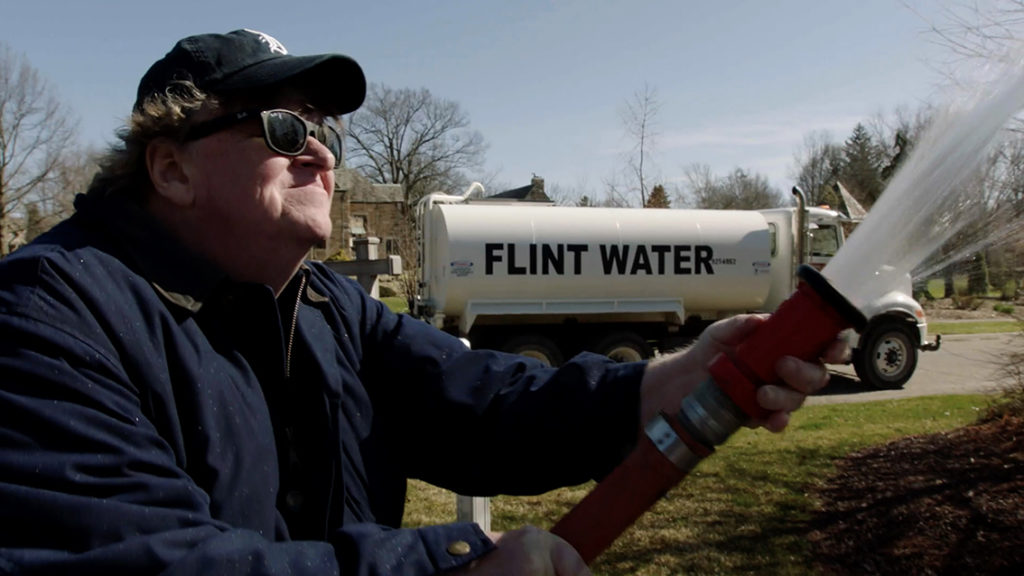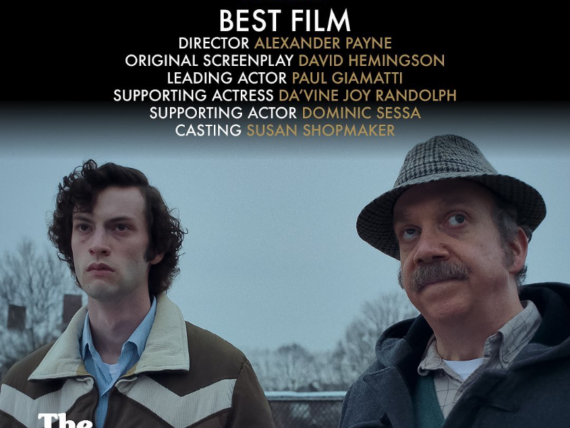Beau Waycott reviews Fahrenheit 11/9, showing at Plymouth Arts Centre until this Thursday (tickets available here).
Fahrenheit 11/9 is American documentarian Michael Moore’s attempt to answer the ever-present questions of Trump’s presidency: ‘how the fuck did we get here?’, and ‘how the fuck do we get out?’. With direct (and not exclusively titular) references to Moore’s 2004 analysis of post-War Bushism Fahrenheit 9/11, we see more self-reflection in this new release, yet Moore’s message remains slightly unclear.
Moore’s work begins by following Trump’s assent to Republican nominee, and subsequent electoral victory and inauguration. For 20 minutes or so, we revell in the Democratic smugness on the campaign trail, with clips of newsreaders and journalists lambasting the idea of Trump gaining even a moderate percentage of the vote as not just ludicrous but impossible played alongside classically baboonish Trump soundbites. Deep sincerity from Moore can be sensed as he reflects on his own peculiar links with Trump, Jared Kushner and Steve Banon, giving the film a warm personality and intimacy. However, it is clear from the offset that, following Moore’s standard rhetoric, subtlety is not a priority of Fahrenheit 11/9: there are (completely unsubstantiated) allusions to Russian interference in the election, blatant accusations of inappropriate relations between Trump and his daughter Ivanka, and even footage of Hitler giving an impassioned speech overlaid with audio of Trump’s interviews.
However, the film is not just a general bemoaning of new-found ‘Trumpism’, but also an exploration of the failures of the left. Moving away from the election and into a more personal issue, we see genuine anger at Obama’s non-committal and dishonest response to the debilitating Flint water crisis that began in 2014, with Moore expressing deep vexation not just at Republican governor Rick Snyder, but the American political system as a whole. This issue is explored again in regards to the lack of transparency in Democratic nominee selection, where Bernie Sanders’ attempt to win the bid (as publicly supported by Moore) was killed by the heart of the Democratic Board itself, much to the dismay of (mostly young) Democrats.
Indeed, the hope Moore shows in his film stems from his belief in the power and vitality of the American youth. Citing not just Congressional wins such as the election of Alexandria Ocasio-Cortez, a 28-year old Bronx native elected just this year, but also grassroots victories like the international social media campaigns organised by teenage survivors of the Parkland School shooting that led to thousands of American school goers leading protests to reform gun ownership laws and the donation of organisations such as the NRA to political groups and even politicians themselves.
Disquiet is successfully created in audiences, yet Moore’s message about how to channel this anger remains unclear. With a film that takes you on so many wheeling tangents, a slightly aporetic ending makes it difficult to truly understand Moore’s message. However, this new documentary is most definitely worth its time, probing questions not just of the lunacy of the right, but also the (all too often forgotten) shortcomings of the modern left.
Beau Waycott









Comments
Comments are closed.